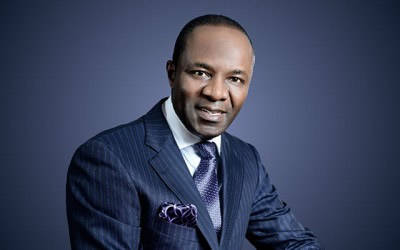As the scarcity of Premium Motor Spirit continues to take a toll on motorists and other consumers in most parts of the country, the Minister of State for Petroleum Resources, Dr. Ibe Kachikwu, on Monday said the trucks conveying the product were being diverted to Cameroon and Chad.
Kachikwu, who stated this in Lagos at a town hall meeting, said the fuel scarcity had persisted mainly because the Nigerian National Petroleum Corporation could not track the trucks being used to convey the product to filling stations.
According to the minister, none of the trucks transporting fuel across the country is being tracked.
Kachikwu said his ministry was working towards installing trackers on each truck and registering the depots and filling stations they were meant to supply in a bid to curb diversion of the product.
He said, “Over 30 per cent of (fuel) supply is diverted. For example, in the last five days, we have pumped 400 trucks of product into Lagos State. The total consumption (in the state) at the maximum is 250 trucks; most of those trucks are diverted from Lagos to the hinterland of Chad and Cameroon.
“We need, literally, a whole army to stop this from happening. So, I continue to supply and over-supply and so we struggle.”
The minister urged Nigerians to report cases they know about, adding that the task of tackling fuel scarcity could not be left to the government alone.
“We started publishing deliveries and tell you the filling stations they were allocated to. So, if you don’t find products in those filling stations, there are hotlines to call,” he stated.
He asked Nigerians to exercise more patience, adding that his ministry and the NNPC were working hard to proffer long-term solutions to the fuel supply problem.
“Do not judge our work on the basis of the difficulties you have had in fuel supply. I love your patience, I appreciate it; we are working feverishly at solutions. We are looking at intelligent solutions,” he added.
Kachikwu said the NNPC had largely dealt with the shortfall in supply resulting from subsidy debt to the marketers and foreign exchange scarcity, and had, by itself, substantially improved supply of products.
He, however, described this as a short-term solution, saying the private sector “needs to drive this business… because ultimately, without doing that, we are never going to find a solution to this problem.”
The minister said the NNPC was currently burdened with the entire work of supply and regulation.
“That model must change. The private sector will have incentives to drive their business,” he said.
The minister said the difficulties in the oil sector were as a result of years of systematic enclosure of opportunities and lack of transparency.
According to him, significant gains are being made, adding, “Contracts are awarded through open bids; monthly transactions are now being published by the NNPC, with favourable business policies now in place after a 20-year lull.
“For the first time, the average loss position of the NNPC, which was about N300bn per month, has been reduced to about N3bn as of January 2016. The direct sale, direct purchase, which was the offshore processing arrangement, which we reviewed, has saved us over $1bn.
“Payment of subsidies, which last year was over N1tn, has been reduced to zero, except in April, which was prepared for because of over-recovery.”
Kachikwu said pipelines and refineries, including the Warri and Port Harcourt refineries, had been revived, while the Kaduna refinery would begin to work in a week.
“Today, we commissioned, for the first time in seven years, the crude supply pipeline both from Brass to Port Harcourt and from Escravos to the Warri refinery.”
Punch…..
This page has been viewed 824 times


























